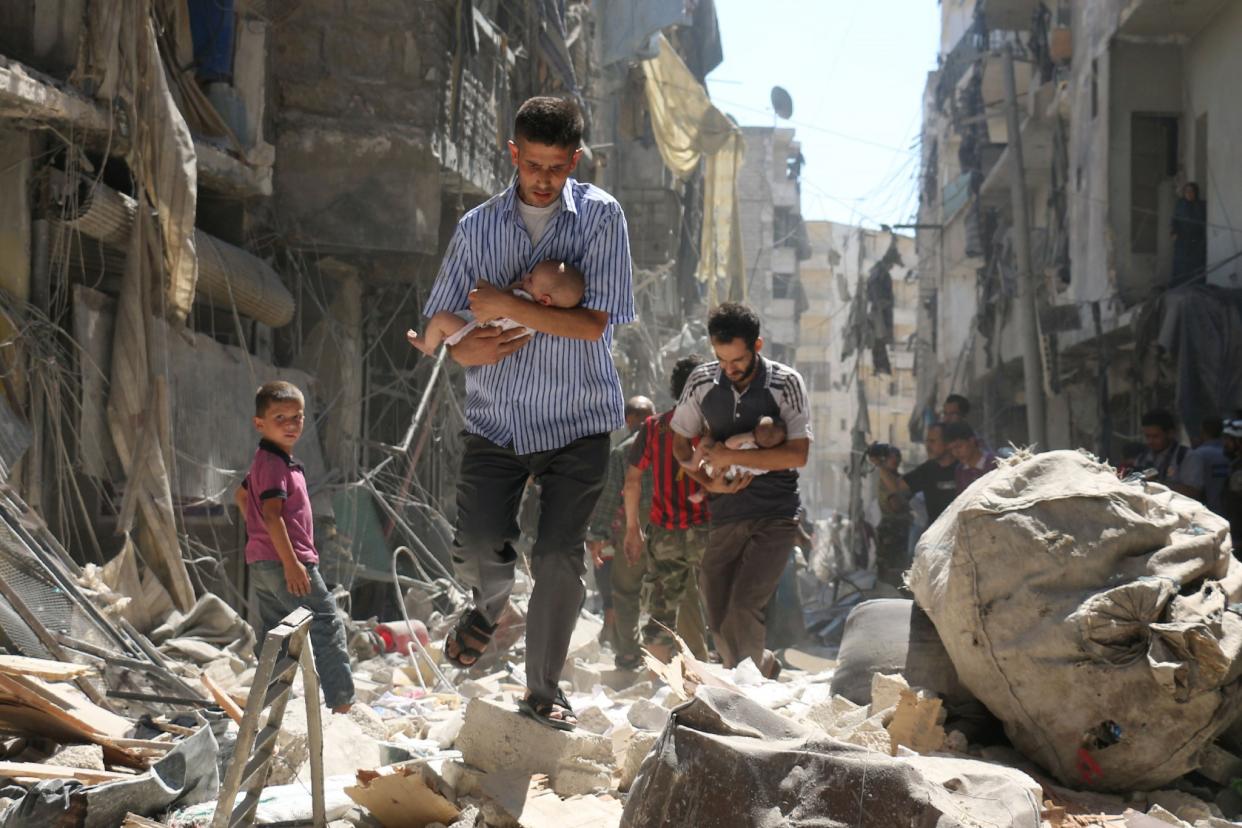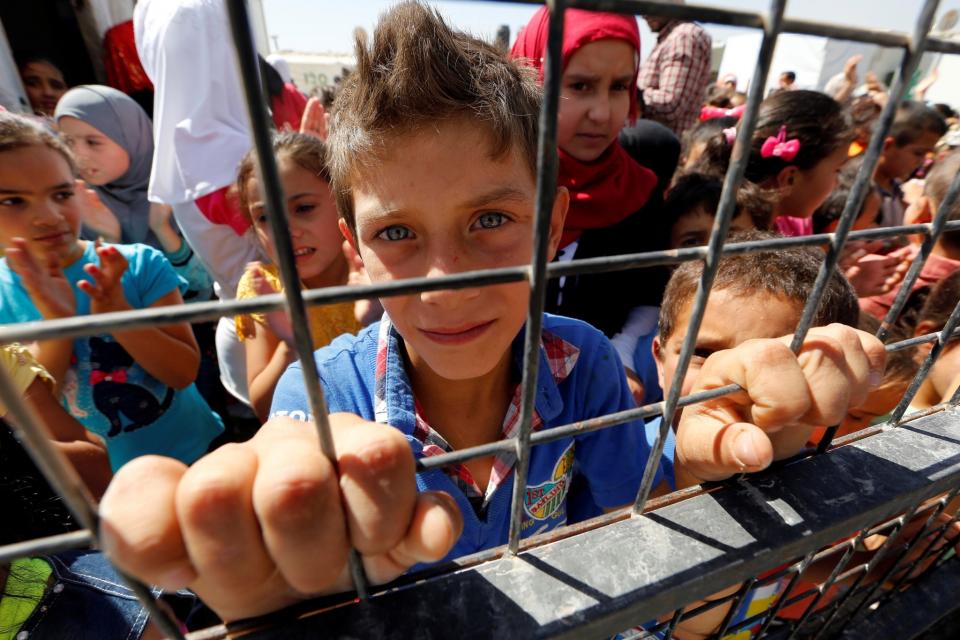16 places that shaped the 2016 election: Aleppo, Syria

By Nov. 9, the votes will have been cast and counted, there will be a winner and a loser, and the country will begin a slow return to normal. Historians will have their say on the outcome, but all of us who have lived through this election will carry away indelible memories of a shocking year in American history: of a handful of ordinary people, swept up in the rush of history; of a series of moments on which the fate of the nation seemed, at least briefly, to turn; and of places on the map that became symbols of a divided nation. As we count down to Election Day, Yahoo News has identified 16 unforgettable people, moments and places.
“What is Aleppo?” — Libertarian candidate for president Gary Johnson, in response to a question from MSNBC’s Mike Barnicle, Sept. 8, 2016.
Johnson’s ingenuous confession of ignorance about the city at the center of Syria’s agonizing civil war will likely go down in political history as the punchline to a campaign that is ending as a joke — effectively abandoned even by running mate William Weld, a former governor of Massachusetts, who said his main focus now is to keep Donald Trump out of the White House. It was particularly startling, coming just weeks after the world was transfixed by the shell-shocked stare of a bloodied, dust-covered 5-year-old who was rescued after a bombing that killed his older brother.
But the question Johnson fumbled — what should the U.S. do in response to the humanitarian catastrophe unfolding in northern Syria — continued to resonate as the Syrian government stepped up its war against the rebels who have held the eastern part of the city since 2012. The complexities of a battle pitting the brutal regime of Syrian President Bashar Assad and its unsavory allies (Russia, Iran and Hezbollah) against a fractured opposition that spans the political, ethnic and religious spectrum have stymied the U.S. throughout President Obama’s second term, and will almost certainly confront his successor. A ceasefire painstakingly negotiated by Secretary of State John Kerry was announced in mid-September and fell apart in days.

Meanwhile, Syrians have continued to flee their country and seek asylum in Europe — or the U.S., if they can reach it, making a convenient target for Donald Trump, who described them as “the great Trojan horse of all time.” (Notwithstanding Trump’s claim that “we have no idea who they are,” Syrians seeking to settle in the U.S. go through a vetting process that can take as long as two years.) The issue also came up during the vice presidential debate, when Republican Mike Pence said the U.S. should establish “safe zones” for civilians who have been targeted with shrapnel-filled “barrel bombs” and gas attacks, and also “should be prepared to strike military targets of the Assad regime.” It surfaced again during the second presidential debate, when Trump flatly contradicted Pence’s position, claiming, “He and I haven’t spoken, and I disagree.” Trump also essentially conceded Aleppo, and the 250,000 civilians holding out in the rebel-held eastern portion, to the government, saying, “It basically has fallen.” But the fighting wasn’t over, and children were still dying.
The problem is staggeringly complex, but it can be boiled down to a choice of undesirable alternatives: allowing Assad to bomb the rebels into submission, followed most likely by a bloodbath of vengeance, or risking a war with Russia by enforcing a no-fly zone against Russian warplanes. Under those circumstances, Johnson could almost be forgiven for trying to forget the whole thing — if he weren’t running for president. — By Jerry Adler
Warplanes pound Aleppo – Dozens dead
On September 28, the United States threatened to suspend its engagement with Russia over the conflict in Syria following escalating attacks on rebel-held parts of Aleppo city, including strikes on two hospitals. >>>
Syrian refugees
Refugees streaming into Turkey from Syria say their home city, once bustling with 400,000 citizens, has become a ghost town, emptied of all people but a few thousand fighters trying to hold off an onslaught by Islamic militants. >>>
Syria’s children caught in the crossfire of civil war
Children have paid the price of the country’s nearly five-year civil war. The overall death toll in the conflict is approaching 500,000, according to the most recent studies, and it is estimated that children account for about 20 percent of that total. >>>
New refugee proposals as photos of drowned Syrian boy shock world
European leaders, shocked by the horrifying image of a drowned Syrian child, rushed out new proposals Thursday to address the escalating migrant crisis despite deep divisions in the 28-member bloc. >>>
Donald Trump disagrees with running mate Mike Pence’s views on Syria
The Republican ticket was split with their debate answers over how to deal with Bashar al-Assad and the Syrian rebels. >>>
Gary Johnson’s ‘What is Aleppo’ moment
Libertarian presidential candidate Gary Johnson stunned a “Morning Joe” interviewer on Thursday when he appeared to be unfamiliar with Aleppo, the most populous city in Syria and the epicenter of the long and violent conflict that has sparked a global refugee crisis. >>>
"Remember: many of these Syrian refugees are fleeing the same terrorists who threaten us." —Hillary
— Hillary Clinton (@HillaryClinton) November 19, 2015
Europe and the U.S. must immediately stop taking in people from Syria. This will be the destruction of civilization as we know it! So sad!
— Donald J. Trump (@realDonaldTrump) March 24, 2016







